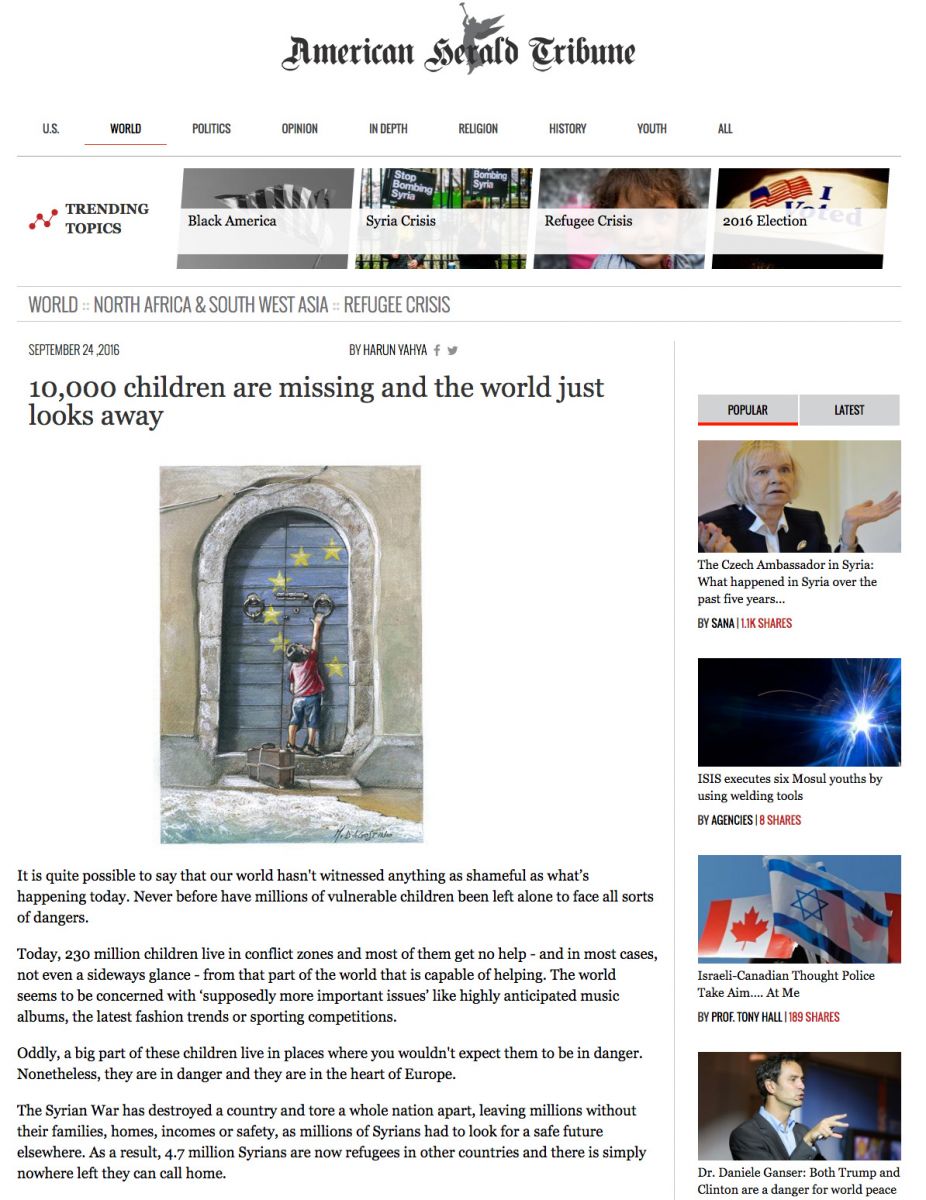
It is quite possible to say that our world hasn't witnessed anything as shameful as what’s happening today. Never before have millions of vulnerable children been left alone to face all sorts of dangers.
Today, 230 million children live in conflict zones and most of them get no help - and in most cases, not even a sideways glance - from that part of the world that is capable of helping. The world seems to be concerned with ‘supposedly more important issues’ like highly anticipated music albums, the latest fashion trends or sporting competitions.
Oddly, a big part of these children live in places where you wouldn't expect them to be in danger. Nonetheless, they are in danger and they are in the heart of Europe.
The Syrian War has destroyed a country and tore a whole nation apart, leaving millions without their families, homes, incomes or safety, as millions of Syrians had to look for a safe future elsewhere. As a result, 4.7 million Syrians are now refugees in other countries and there is simply nowhere left they can call home.
However, before the war, Syrians led decent lives just like us. They were regular people with normal lives. They were doctors, teachers, engineers; mothers, fathers, grandparents, and schoolchildren. They probably never imagined that someday their ‘normal’ lives would be shattered into pieces and that they would find themselves in positions no one would want to be in. Yet that is exactly what happened, and millions of Syrians have had to turn to others for help, even if those others are usually unsympathetic or even downright hostile towards them.
You have certainly heard how droves of refugees constantly seek ways to reach Europe and embark on perilous ‘death voyages’. Many perish on the way but most of those who manage to set foot in Europe face shocking hostility, humiliation and rejection. An inexcusable ‘we don't want you here, go back to where you came from’ attitude is all too prevalent across Europe. Many of these downtrodden people are held in inhumane detention centers, including babies who sometimes have to sleep on the ground, and having to survive on a little amount of milk. Maybe worse, among these scores of people there are thousands of unaccompanied minors. You read that right; thousands of children without any adult supervision, completely exposed to all sorts of dangers. Their ages vary from 1 to 17.
Unpredictably, Europol recently reported 10,000 unaccompanied refugee children have now gone missing. Not one, ten, or a hundred children: 10,000 refugee children are missing. According to the authorities, they might have been taken by human traffickers, sex traders, or organ traffickers; as of this writing, no one is completely sure where they've disappeared to.
Europe is one of the richest continents in the world, with a sizable area more than enough to accommodate one million refugees. After all, Turkey, Lebanon, Jordan and Iraq, with significantly less wealth when compared to Europe and with much less area, generously opened their doors and welcomed close to a 4.8 million refugees in an approach praised as ‘the best example in the entire world’. Turkey alone has spent some $10 billion for 2.7 million refugees without any foreign help, even though it has a GDP of only $10,500 per capita.
But Europe has a completely different story: Take the “Calais Jungle” in the heart of Europe, on the coast of France, for instance. There is a reason why this place is called a ‘jungle’. The situation in this so-called camp is so horrible, it doesn't seem fit for anyone, especially for the children. Recently, it was reported that teenage boys are being raped in the camp, but still no real measures are taken. Night after night many children dangerously seek ways to go to the UK, sometimes by stowing or hiding away in trucks: Many die in the process. French police treat them brutally, teargas them or beat them up when they are caught. On top of this, British government last week rejected permission to allow 3,500 unaccompanied refugee children from camps in Europe to enter Britain.
Surely, there are exceptions in Europe, such as Sweden and Germany. Even though their efforts and help could be immensely larger given their economies and areas, their approach is laudable considering the attitude of the rest of Europe. In the same way, many European politicians, opinion leaders and Europeans adopt the same approach and promote enormous compassion for refugees. We hope that they will set a great example to the rest of their people and prove to the world once again that Europe is indeed a champion of human rights and a place of the highest standard of civilization and equality.
0 comments:
Post a Comment